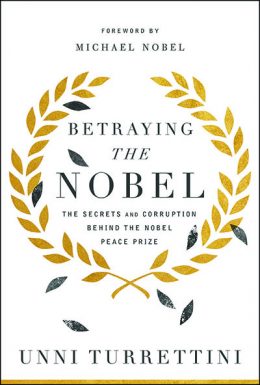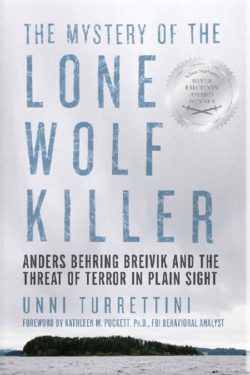


For the first time, the life and mind of Anders Behring Breivik, the most unlikely of mass murderers, is examined and set in the context of wider criminal psychology.
Anders Behring Breivik, whose July 22, 2011 killing spree in Norway ended 77 lives, is characterized here as a “lone wolf killer,” and compared and contrasted with past mass murderers, primarily Theodore Kaczynski and Timothy McVeigh. The thesis, that lone wolves can be identified only by sensitive observation by the communities within which they attempt to form connections, is believable and clearly stated.
Ricardo Laskaris, York Univ. Lib., Toronto
Actions like those of lone wolf Breivik are seemingly incomprehensible and easily dismissed as those of a single crazed individual. Turrettini combines a discussion of Norwegian culture and social psychology to create a compelling analysis that is simultaneously deeper and more frightening. In today’s world, the man on a shooting spree is everyday news. Turrettini points to a solution that will surprise—and then make perfect sense.
Sharman Apt Russell, author of Diary of a Citizen Scientist
Unni Turrettini does a magnificent job of illustrating the evolution of Anders Breivik in the context of modern Norway, a world she knows is fertile ground for the development of a lone wolf terrorist. She recognizes what authorities have preferred to ignore: that privilege and comfort in a society do not eliminate the likelihood of a terrorist blooming in its midst. She [shows] what can be done to prevent the savagery lone wolves inflict in any country.
Kathleen M. Puckett, Ph.D., former FBI behavioral analyst
Impressive. Filled with extensive research and insights. Turrettini’s style is clear and readable and the analysis is targeted and supported. A compelling, frightening, and worthy read.
The Huffington Post praise for The Mystery of the Lone Wolf Killer
The author's argument has wide application: namely, that by overlooking announcements of intent, in effect, that these killers often make before acting, law enforcement officials will miss the lone wolf killers among us. An urgent but evenhanded treatise that deserves a wide readership.
Kirkus Reviews praise of the Mystery of the Lone Wolf Killer
Betraying the Nobel describes in detail the fallacies of past selections. This is an excellent book.
Michael Nobel, from the Foreword of Betraying the Nobel
The Nobel Prize Peace is perhaps the most closely held monopoly of its kind, charged by Alfred to be the 'conscience of the world'. Yet, Unni Turrettini's impeccably researched, masterfully argued case against the prize airtight: it teems with invidious corruption, politicization, secrecy, opacity, and unaccountability. Yet, hope endures that the award may someday live up to Nobel’s altruistic aspirations; but only if the Peace Prize Committee hearkens to Turrettini’s clarion call for reform.
Brian G. Keating, PhD, Chancellor’s Distinguished Professor of physics, UC San Diego, author of Losing the Nobel Prize.
Turrettini had written a brilliant, illuminating story that delves into the history of the Nobel Peace Prize to reveal how corruption and media attention have reduced one of the most prestigious honors into little more than a popularity contest. If there's one book to read this year, it's Betraying the Nobel.”—Samina Ali, author of Madras on Rainy Days and curator of “Muslima
Samina Ali, author of Madras on Rainy Days and curator of “Muslima”
Turrettini's book Betraying the Nobel is a tour de force of investigative research, subtle analysis and balanced reporting. It is essential reading for any citizen who wants to understand global politics—and should be assigned for study in foreign ministries and universities around the world.
Ambassador Derek Shearer
Turrettini delves into the weird nebula of secrecy, dogma, politics, and pressure surrounding the Nobel Peace Prize. One might think the honor is unassailable…but Turrettini shows the controversial history of some of the prize winners (see: Yasser Arafat, Henry Kissinger, or Aung San Suu Kyi) as well as the many deviations from the construct that its creator, Alfred Nobel, envisioned. Intriguing and unforgettable.
Kirkus Reviews
Unni Turrettini describes in her efficient and quietly devastating account, [how] the Peace Prize soon fell to secret horse-trading, moral grandstanding and what one Norwegian parliamentarian calls ‘the privatization of foreign policy’... Turrettini provides a detailed account of how it all went wrong.
The Spectator

